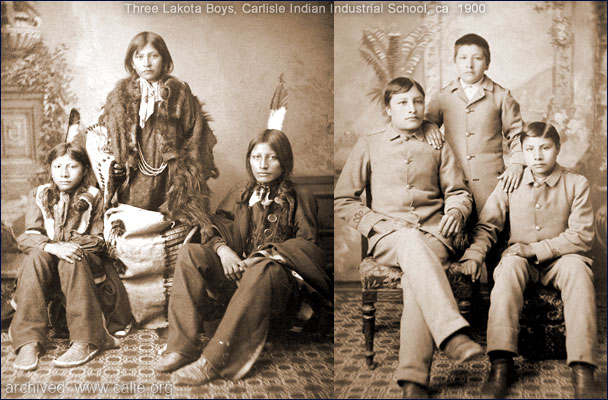
Page Description
The Darker Side of Residential Schools:
Explore the forced removal of Indigenous children, cultural genocide, and abuse in church-run schools in Canada.
The Tragedy of Canadian Residential Schools
The story of Canada’s residential schools is a heartbreaking chapter in history – one that is best understood not just through words, but through the voices of those who lived it. This page presents a collection of videos, images, and texts that reveal the profound suffering endured by Indigenous children, torn from their families and forced into institutions meant to erase their culture. Listening to these testimonies, one quickly realizes that no words can truly capture the depth of this tragedy.
De Tragedie van de Canadese Residential Schools
Het verhaal van de Canadese residential schools is een aangrijpend hoofdstuk in de geschiedenis – een dat niet alleen in woorden te vatten is, maar vooral in de stemmen van degenen die het hebben meegemaakt. Op deze pagina vindt u een verzameling video’s, afbeeldingen en teksten die de diepgaande pijn laten zien van inheemse kinderen die uit hun families werden weggehaald en gedwongen in instellingen die hun cultuur moesten uitwissen. Wanneer je deze getuigenissen beluistert, besef je al snel dat geen enkel woord de ware omvang van deze tragedie kan beschrijven.
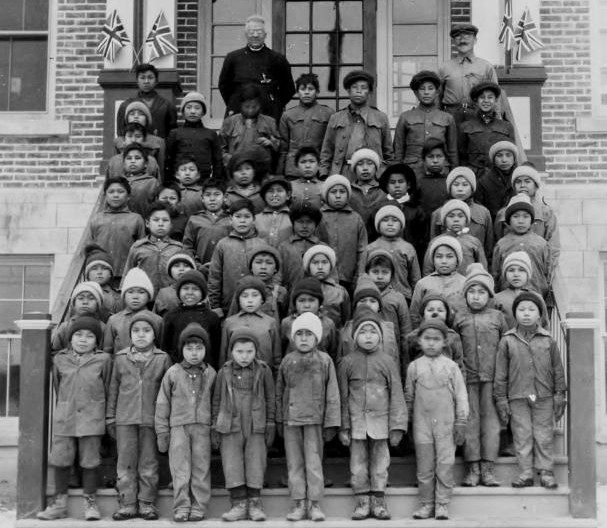
Canada’s Residential Schools
The residential school system is older than Confederation itself, having lasted from 1831 to 1996, and represents a dark aspect of Canadian history. These government-sponsored, church-run schools aimed to assimilate Indigenous children by taking them away from their families and forcibly eradicating their cultural identity.
Residential schools have left a horrific legacy that survivors, communities, and families still struggle to overcome and heal from to this day.
De heropvoedingstehuizen van Canada
De Residential Schools in Canada
Het residential school-systeem is ouder dan de Canadese Confederatie zelf en bestond van 1831 tot 1996. Het vormt een duister hoofdstuk in de Canadese geschiedenis. Deze door de overheid gesteunde en door kerken gerunde scholen hadden als doel inheemse kinderen te assimileren door hen weg te halen bij hun families en hun culturele identiteit met geweld uit te wissen.
Residentiële scholen hebben een afschuwelijke erfenis achtergelaten die overlevenden, gemeenschappen en families tot op de dag van vandaag met moeite te boven komen en waarvan ze moeten genezen.
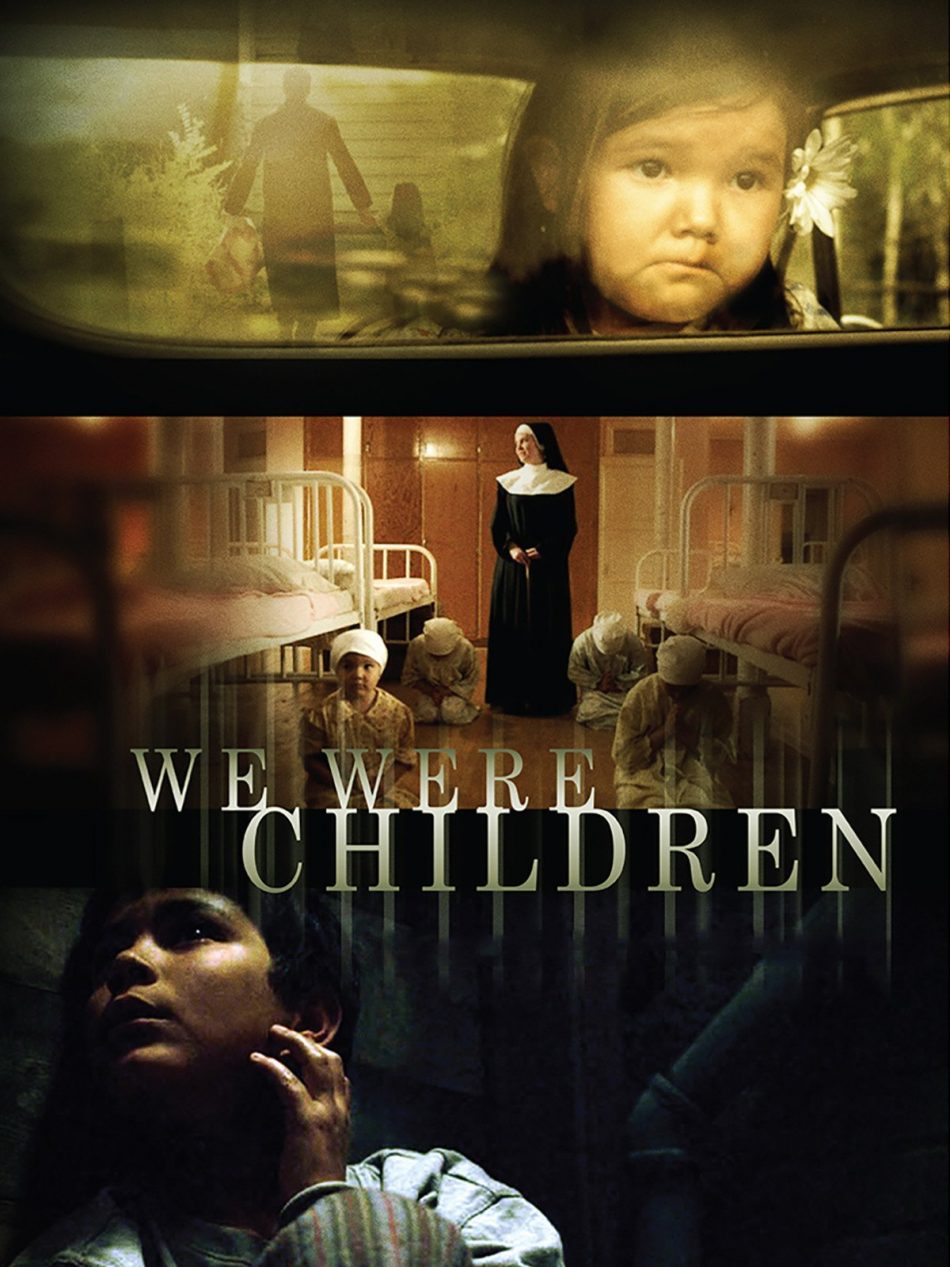
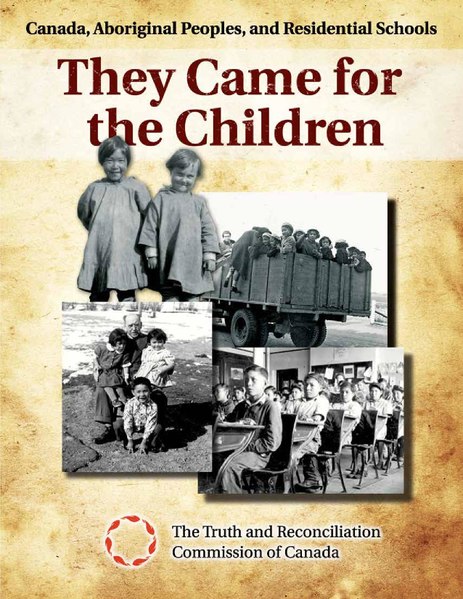
The First Nations Residential Schools in Canada refer to a dark chapter in Canadian history where Indigenous children from First Nations, Inuit, and Métis communities were forcibly taken from their families and placed in government-funded, church-run residential schools. These schools were established in the late 19th century and continued to operate into the late 20th century, with the last school closing in 1996. The key points related to the First Nations Residential Schools in Canada are:.
Forced Removal of Indigenous Children: Indigenous children, often as young as 3 or 4 years old, were forcibly removed from their families and communities and sent to residential schools. This policy of forced removal was part of the Canadian government’s attempt to assimilate Indigenous peoples into Euro-Canadian culture and suppress their language, culture, and spirituality.
Church-Run Schools: The residential schools were primarily run by Christian churches, including the Roman Catholic Church, the Anglican Church, the United Church of Canada, and others, in partnership with the Canadian government. These schools were managed by religious orders and were funded by the federal government, often operating under a system of contracts.
Cultural Genocide: Indigenous children in residential schools were subjected to cultural genocide, as they were forcibly stripped of their language, culture, and traditional practices. They were forbidden from speaking their native languages, practicing their spiritual beliefs, or engaging in traditional cultural activities. This had a profound and lasting impact on Indigenous communities, resulting in the loss of language, culture, and intergenerational trauma.
Abuse and Neglect: Many Indigenous children in residential schools experienced physical, sexual, and emotional abuse, as well as neglect. There were numerous reports of physical punishment, sexual abuse, malnutrition, and inadequate healthcare in these schools. The harsh living conditions, abuse, and neglect in residential schools resulted in significant trauma and impacted the mental, emotional, and physical health of the survivors.
High Mortality Rates: Many Indigenous children died while attending residential schools due to disease outbreaks, inadequate healthcare, and unsanitary living conditions. The mortality rates in these schools were often much higher than those in the general Canadian population. The bodies of many children who died in these schools were never returned to their families, and their graves were often unmarked or unidentified, leading to the discovery of unmarked burial sites in recent years.
Intergenerational Impacts: The legacy of the residential schools continues to affect Indigenous communities in Canada today. The trauma, loss of language and culture, and other impacts have been passed down through generations, resulting in ongoing challenges such as mental health issues, substance abuse, poverty, and cultural dislocation.
Truth and Reconciliation: In 2008, the Canadian government established the Truth and Reconciliation Commission (TRC) to investigate and document the history and legacy of the residential schools. The TRC held hearings across the country and heard testimony from thousands of survivors and their families. In 2015, the TRC released its final report, which included 94 recommendations for reconciliation, including apologies, reparations, and systemic changes to support healing and reconciliation with Indigenous peoples in Canada.
Calls to Action: The TRC’s final report included 94 Calls to Action, which provide a roadmap for addressing the legacy of residential schools and achieving reconciliation. These Calls to Action include measures such as implementing the United Nations Declaration on the Rights of Indigenous Peoples, addressing the health and welfare of Indigenous children, supporting language and culture revitalization efforts, and addressing the over-representation of Indigenous children in the child welfare system, among others.
Apologies and Reparations: The Canadian government and various Christian churches have issued apologies for the role they played in the establishment and operation of the residential schools. Some churches have also provided financial repar
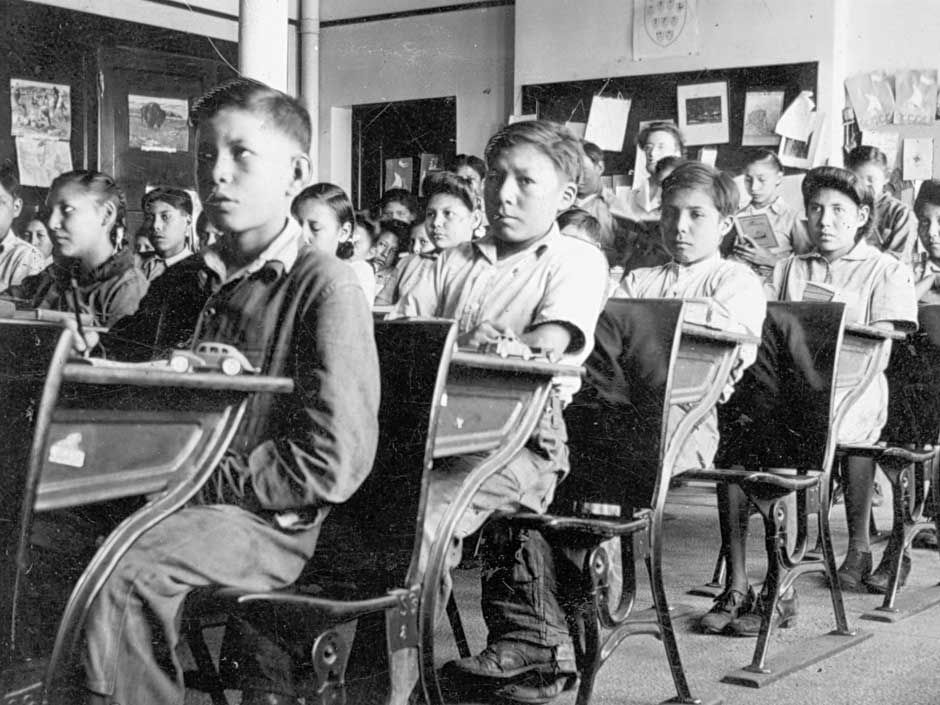
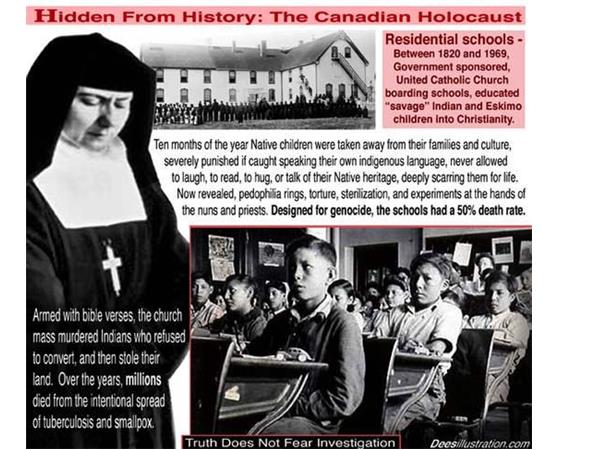
The dark side of Residential Schools More
Residential schools to blame for problems plaguing aboriginals
Justice
Residential schools “inflicted profound injustices” on Aboriginal people. “The children who attended residential schools were treated as if they were offenders and were at risk of being physically and sexually abused,” the TRC says.
When they complained of abuse, the students were often ignored.
Years later, when they launched civil lawsuits, they found the legal system was stacked against them “in a way that often re-victimized the survivors.”
Kamloops residential school survivors recall students going missing, digging of graves in orchard
14 jan. 2022
The dark legacy of Canada’s residential schools, where thousands of children died
7 feb. 2022
Educational: This video is essential viewing
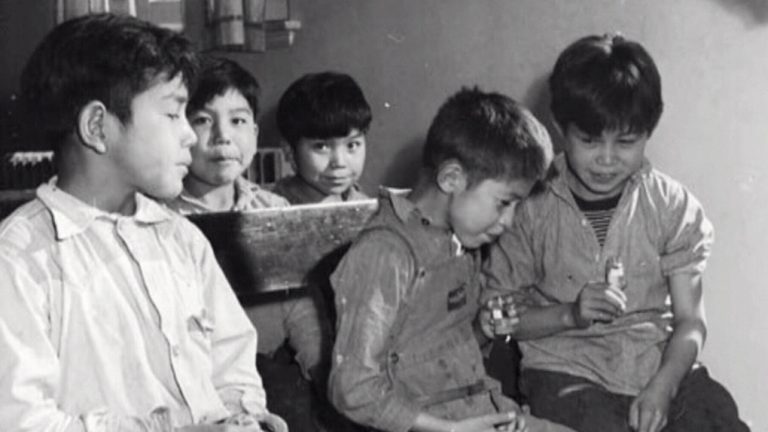
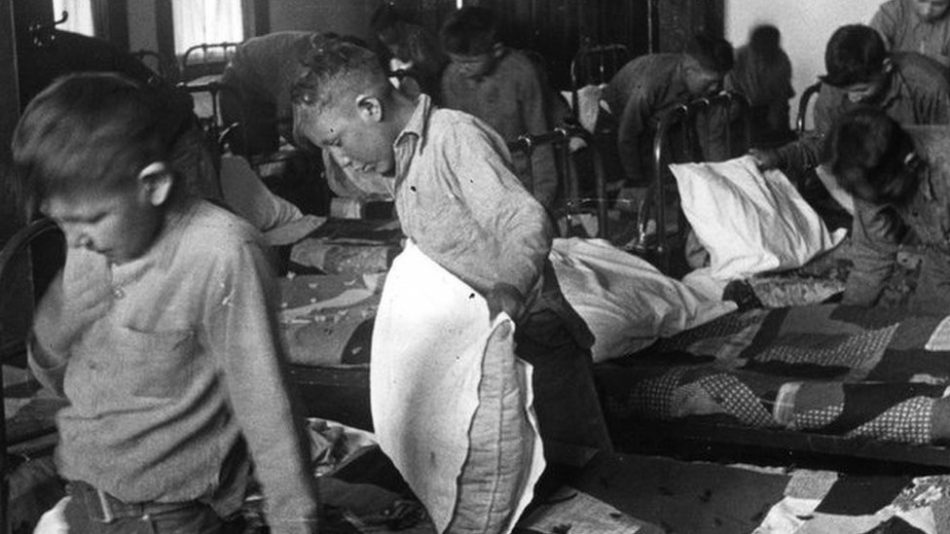
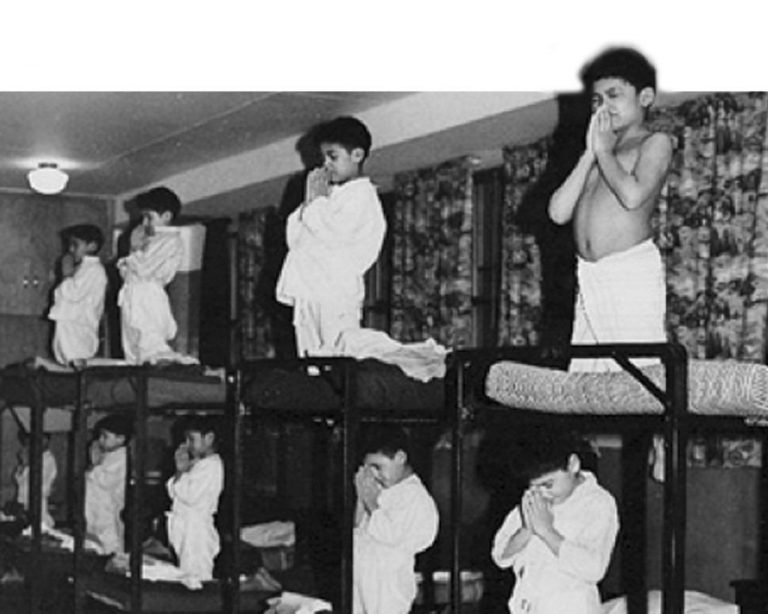
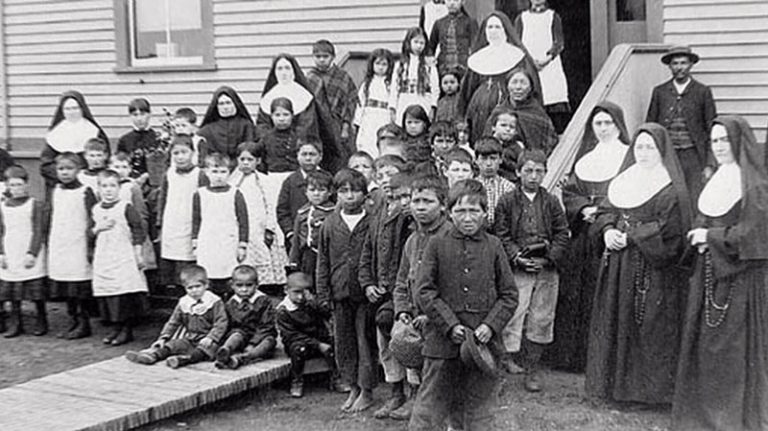
Canada Officially Recognizes Historical Abuse To First Nations
17 dec. 2015
Response to Ministerial Statement: Burial site of Indigenous Children at Kamloops Residential School
1 jun. 2021
Today I rose to response to the Ministerial Statement on the burial site of Indigenous children at Kamloops Residential School.
[Transcript]
I rise today to respond to this ministerial statement. Today my family and the entire B.C. Green caucus team stands with our relatives in the Interior. We wrap our arms around them in love. We share their tears, and we let them know that we’re here for them.
Today I stand in this House to honour those who lost their lives in the residential school system. The words that I’m going to speak today aren’t easy, and they are direct. Like many of my peers, my grandparents, my great aunties and uncles are survivors of Kuper Island Residential School. I know that they’d want me here today honouring the horrors that they lived through by demanding accountability for them.
The resounding story that I heard from Indigenous leaders this weekend is that this is the beginning. We know in our hearts this is the beginning. For the last several years, our Crown governments and society believes that it has been doing the work of reconciliation. After all, many of these stories have already been shared by residential school survivors through the Truth and Reconciliation Commission.
What needs to be addressed here is our response. Specifically, the urgency and our reaction to what has been and what is being uncovered. It’s not that we haven’t done anything. We’ve started the work. But have we really moved as quickly as you would expect after hearing these horrors?
We know that if these children were not Indigenous but rather European, that we would not have been slow to act. I see on social media my friends and colleagues sharing graphics agreeing that all children matter. Yet deep down, we know that in our society it’s just a fact: in Canada and British Columbia, some children matter less.
We know underneath the shiny, happy facade of Canada and British Columbia, there lurks a grotesque and shameful past. For 30 years, my relatives have been sharing their experiences from these despicable institutions. For 30 years, those stories have been hushed. Our relatives have been told that Canadians and British Columbians don’t want to hear their stories. They’ve been told to stop lying. They’ve been told to stop embellishing.
There was a statement from this institution that noted the “unimaginable proportions” of this tragedy. This is an incredibly unfortunate characterization of the situation that we carry. For Indigenous People, this story is not shocking nor is it “unimaginable.” This is the trauma our families have carried for generations.
When people ask me what our problem is, why don’t we pick ourselves up, they haven’t wanted to hear the answer. As we continue to grapple with missing and murdered Indigenous women and children, hanging red dresses in recognition of our current reality, what is uncovered in Kamloops is the stark reminder that this story line is not new. It has been in the imagination — indeed, in the nightmares — of our relatives for the past 130 years. It is the terror that our ancestors have lived with.
The only reason to call it “unimaginable” would be because these institutions, these Crown governments, federal and provincial governments, and the people that populate these chambers in the past either haven’t been listening to our stories, or they’ve cared less, because it is a reality in our country that some children have mattered less. These are both terrible considerations.
[2:05 p.m.]
There is nothing to imagine for those who have been paying attention. Our elders, our families, have been sharing the grim details of their experiences in residential schools for decades. That is the record of the Truth and Reconciliation Commission. You don’t have to imagine it. You just have to believe it and care enough to act with the urgency that you would if it was your child that didn’t return home from school. It’s your kids going to school. Not coming home. Not being there when their parents are there to pick them up.
Duncan Campbell Scott, deputy superintendent of Indian Affairs from 1913 to 1932, is often associated with saying: “Kill the Indian, save the man.” Joseph Trutch, whose name is on a plaque right outside that door, British Columbia’s first Lieutenant-Governor following Confederation, is quoted as saying: “I think they are the ugliest and laziest creatures I ever saw, and we should as soon think of being afraid of our dogs as of them.” As historian Robin Fisher wrote extensively in “Joseph Trutch and the Indian Land Policy” of Trutch’s role in dispossessing Indigenous Peoples of their lands, he did it quite extensively.
[View the whole transcript at https://www.adamolsen.ca/2021/05/resp…]
Trudeau, MPs reflect on horrifying discovery at Kamloops residential school during debate
2 jun. 2021
Prime Minister Justin Trudeau reflected on the loss of 215 children whose remains were found at a former Kamloops residential school during a debate in the House of Commons on Tuesday, saying that they “would have been elders, knowledge keepers and community leaders.”
The prime minister added that their loss was “the fault of Canada.”
Other members of parliament also spoke out about the discovery of unmarked burial sites at the former residential school, with Winnipeg MP Leah Gazan calling for these sites to be “treated as a crime scene.”
Liberal MP for Oakville North-Burlington pointed to Canada’s troubling past when it comes to the treatment of Indigenous people, stating that the country was “founded” on racism and colonialism.
Meanwhile, Indigenous Services Minister Marc Miller used some of his time to read out the names of some of the children known to have died at the former Kamloops residential school between 1900 and 1971.
Trudeau promises support for residential school survivors amid calls for action
1 jun. 2021
Inside the Williams Lake residential school: Violation of Trust (1991) – The Fifth Estate
11 feb. 2022
Canada’s Shame: Residential schools, unmarked graves, and the search for justice | People & Power
31 aug 2023 #indigenous #documentary #investigation
On October 27, 2022, Canada’s parliament unanimously recognised the country’s residential school system as genocide. More than 150,000 Indigenous children were forcibly taken from their homes between the 1880s and late 1990s, and placed in distant schools where they were stripped of their identity.
Officially, more than 4,100 children died at the schools, but it’s believed many more lost their lives while in the government-funded system. At least 1,300 potential unmarked graves have been identified using ground-penetrating radar at just four of the 139 residential schools nationwide.
Now, new revelations are emerging as investigators search the lands surrounding former residential schools across the country. People and Power joins teams as they try to seek justice for the thousands of children who went missing and looks at the long-term consequences of the system.
Educational: This video is essential viewing
Canada will pay 2 billion euro in compensation to indigenous people
22-01-2023
The Canadian government has reached an agreement with 325 indigenous communities to compensate them for 2.8 billion Canadian dollars (about 1.9 billion euros) for abuses in boarding schools between the late 19th century and the 1990s.
“Canada is committed to repairing the collective damage caused by the residential school system and the loss of language, culture and heritage,” the Ministry of Crown-Indigenous Relations and Northern Affairs Canada reported.
For nearly a century, some 150,000 indigenous children across Canada were forcibly taken into 139 schools, often run by the Catholic Church, where they were cut off from their families, language and culture. Thousands never returned. Many were physically and sexually abused and thousands died of illness, malnutrition or neglect. A national commission of enquiry called the system a cultural genocide.
The amount will be placed in a fund independent of the government, with the aim of “reviving indigenous education, culture and language – to support survivors to heal the wounds and reconnect with their heritage,” the government statement said.
Over the past two years, this dark colonial past of Canada has resurfaced as children’s graves have been discovered near the institutions where indigenous children were forcibly conscripted. More than 1,300 graves have already been identified, the latest about 10 days ago.
Canada gaat 2 miljard euro schadevergoeding uitkeren aan inheemse bevolking
22-01-2023
De Canadese regering heeft een overeenkomst bereikt met 325 inheemse gemeenschappen om hen voor 2,8 miljard Canadese dollar (ongeveer 1,9 miljard euro) te compenseren voor misbruik in internaten tussen het einde van de 19e eeuw en de jaren negentig van de vorige eeuw.
Canada gaat 2 miljard euro schadevergoeding uitkeren aan inheemse bevolking
“Canada zet zich in om de collectieve schade te herstellen die is veroorzaakt door het residentiële schoolsysteem en het verlies van taal, cultuur en erfgoed”, zo meldt het ministerie van Crown-Indigenous Relations and Northern Affairs Canada.
Bijna een eeuw lang werden ongeveer 150.000 autochtone kinderen in heel Canada onder dwang opgenomen in 139 scholen, vaak geleid door de katholieke kerk, waar ze werden afgesneden van hun familie, taal en cultuur. Duizenden keerden nooit terug. Velen werden fysiek en seksueel misbruikt en duizenden stierven aan ziekte, ondervoeding of verwaarlozing. Een nationale onderzoekscommissie noemde het systeem een culturele genocide.
Het bedrag wordt ondergebracht in een fonds dat onafhankelijk is van de overheid, met als doel “het inheemse onderwijs, de cultuur en de taal nieuw leven in te blazen – om overlevenden te ondersteunen bij het helen van de wonden en opnieuw te verbinden met hun erfgoed”, aldus de regeringsverklaring.
De afgelopen twee jaar is dit duistere koloniale verleden van Canada weer boven water gekomen doordat er kindergraven zijn ontdekt in de buurt van de instellingen waar inheemse kinderen onder dwang werden ingelijfd. Er zijn al meer dan 1.300 graven geïdentificeerd, de laatste ongeveer tien dagen geleden.
Inside Story Americas – Revisiting a dark chapter in Canada’s history
Back to menu
17 mrt. 2013
The country’s Indian residential schools have long been a source of shame, but will a new report shed new light on them? To discuss this, Inside Story Americas is joined by guests: Kimberly Murray, the executive director of the Truth and Reconciliation Committee of Canada; Cindy Blackstock, the executive director of the First Nations Child and Family Caring Society of Canada; and Frank Wallace, who represents the Indian Residential School Survivors Society and attended a residential school himself.
Classificatie Geen content voor volwassenen
Canada must ‘own up to its past’ for horrors at residential schools MPP Sol Mamakwa tells the legisl
Back to menu
31 mei 2021
1 Remains of 215 children found at closed Canada indigenous boarding school
29 mei 2021
2 How some children at the Kamloops residential school died
Back to menu IMPORTANT CONTENT
7 jun. 2021
3 Priest under fire for comments on Canadian residential schools and involvement of church
25 jun. 2021
A Mississauga, Ont. priest is facing backlash from his community following comments he made about residential schools and the involvement of the Catholic Church.
Monsignor Owen Keenan told his parish that two-thirds of the country blames the church for the tragedies that occurred in residential schools. And then went on to suggest others would thank the church, for the “good that was done” in those schools.
The comments come as the country is in mourning for Indigenous communities. Last month the remains of 215 children were discovered at the former Kamloops residential school in B.C.
Anyone experiencing pain or distress as a result of their residential school experience can access this 24-hour, toll-free and confidential National Indian Residential School Crisis Line at 1-866-925-4419
Morganne Campbell reports.
4 Regina archbishop would welcome papal apology for residential schools
26 jun. 2021
5 Investigation finds potential mass grave of Indigenous children in Canada
3 jun. 2021
6 Wawahte: Stories of Residential School Survivors -FULL DOCUMENTARY
25 okt. 2016
7 Hundreds of Unmarked Graves At Former Saskatchewan Residential School
Back to menu
24 jun. 2021
8 Indigenous Communities: Surviving Canada
Back to menu
17 nov. 2017
9 Canadian Shame: A History of Residential Schools | Ginger Gosnell-Myers | TEDxVancouver
25 jun. 2018
10 – 84-year-old survivor of Kamloops residential school: ‘There was rumours of a graveyard’
31 mei 2021
11 SLEEPING CHILDREN AWAKE (Full Version) (©1991)
Back to menu IMPORTANT CONTENT
29 jun. 2016
Sleeping Children Awake (SCA) was shot in 1991 and televised in 1992. It was one of the earliest independant, feature length documentaries to be broadcast on the crucial subject of the Residential School System . SCA won several awards including “Best Canadian Documentary 1993” (CanPro) and was screened at the Truth and Reconciliation Commission of Canada’s national events held in Winnipeg, Manitoba 2010, and Saskatchewan 2012.
The entire documentary is posted here, and also in 6 segments. Click on the ” see all ” in the upload area to view them !
……………………………….
Residential Schools operated in Canada from the 1800’s until 1996. These schools were a primary weapon of the government and the missionaries in their attempt to systematically destroy Native culture. Generations of First Nations people have been scarred from the affects of that policy.
Grand Chief Phil Fontaine (a residential school survivor) said, “The first step in healing is disclosure.”
In this spirit, “Sleeping Children Awake” illuminates the voices of the many former residents and their families, including Elijah Harper (M.P.) and the late Art Solomon ( Elder, Author).
These recollections and experiences are bridged with dramatic excerpts from Shirley Cheechoo’s autobiographical play, “Path with No Moccasins”. Shirley shares an emotional account of her experiences in residential school, a subsequent destructive lifestyle and her journey back into wholeness.
The documentary features the songs of Maria Linklater and artwork of various accomplished artists.
“Sleeping Children Awake” is both a personal record of this nations’ history and a tribute to the enduring strength of Native Cultures.
The full quality DVD is available by contacting: www.magicarrowproductions@gmail.com
AWARDS FOR SLEEPING CHILDREN AWAKE:
————————————————————————
American Indian Film Festival:
Selected for Screening San Francisco, California 1993
Dreamspeaker’s Festival Award of Recognition:
An International Aboriginal ,Culture, Arts and Film Festival Edmonton, Alberta 1994
Can Pro Award:
Best Canadian Documentary 1993
Canadian Association of Broadcasting:
Gold Ribbon Award Finalist in Public Affairs 1993
Iris Awards:
Finalist- Combating Racism / Religious Intolerance 1993
Truth And Reconciliation Commission Of Canada:
Selected for Screening at the National Event ,
Winnipeg, Manitoba 2010, Saskatchewan 2012
12 Canada’s Dark Secret | Featured Documentaries
14 jun. 2017
Canada’s Dark Secret | Featured Documentary
In 1996, the last residential school in Canada was closed down, bringing to light horrifying stories about the methods used to sever indigenous children from the influence of their families and to assimilate them into the dominant “Canadian” culture. Over more than a century, tens of thousands of families were torn apart as children were kidnapped or forcibly removed from their homes
Residential schools were part of an extensive education system set up by the Canadian government and administered by churches with the objective of indoctrinating Aboriginal children into the Euro-Canadian and Christian way of life.
Bud Whiteye, a survivor of the Mohawk Institute Residential School, was “picked up” and taken to the school along with four other children as they walked along a public road to visit his grandmother.
I’m ashamed to say I’m Canadian because of what my government has done.
Ron Short, former RCMP officer
“They didn’t put us in a room and indoctrinate us all day long or anything like that,” he explains. “It was in the routine of the place.
“You didn’t speak anything but English. You went to the white man’s school. You went to the white man’s church. You wore white mens’ clothes. All those were built in. It wasn’t a classroom-type lecture. It was ingrained in the system.”
In 2008, the Canadian government launched the Truth and Reconciliation Commission (TRC), which finally enabled survivors to give their testimonies on life in the residential schools. Abuse – mental, physical and sexual – was rife and, although research and statistics vary, it is estimated that 6,000 children died in these schools. Some evidence puts the casualties at three times that number.
After its formation, the TRC travelled around Canada for six years, gathering testimony from thousands who bore witness to the tragedies of the residential schools. Numerous “Aboriginal healing” programmes were put in place to help those affected to move on with their lives.
SHOCKING CONTENT
13 FULL STORY: Failing Canada’s First Nations Children
6 mrt. 2016
 I was also Valedictorian. It was a great year for me! One day i’m gonna go back out for college and study welding and recreation. I love doing hands on work and working with the youth, its a bond that i’ll never want to break, they’re our future. Thank u all.
I was also Valedictorian. It was a great year for me! One day i’m gonna go back out for college and study welding and recreation. I love doing hands on work and working with the youth, its a bond that i’ll never want to break, they’re our future. Thank u all.14 Crimes against children at residential school: The truth about St. Anne’s – The Fifth Estate
15 Residential Schools in Canada: A Timeline
2 mrt. 2020
16 Residential Schools
17 Reporting on Canada’s Brutal Treatment of Indigenous Children
Dan Ming, Amanda Pisetzner, and Anya Zoledziowski discuss their experience reporting on Canada’s residential schools.
Canadian Boarding Schools: Canada’s Assault on it’s Native Population
18 Stolen Children | Residential School survivors speak out
3 jun. 2015
How Residential Schools affected survivors and their children and grandchildren.
Click here for the full story: http://www.cbc.ca/news/aboriginal
»»» Subscribe to The National to watch more videos here: https://www.youtube.com/user/CBCTheNa…
Voice Your Opinion & Connect With Us Online:
The National Updates on Facebook: https://www.facebook.com/thenational
The National Updates on Twitter: https://twitter.com/CBCTheNational
The National Updates on Google+: https://plus.google.com/+CBCTheNational
»»» »»» »»» »»» »»»
The National is CBC Television’s flagship news program. Airing seven days a week, the show delivers news, feature documentaries and analysis from some of Canada’s leading journalists.
19 My stolen childhood, and a life to rebuild | Sheila Humphries | TEDxPerth
1 jun. 2018
20 Why are Indigenous women missing in Canada?
10 jan. 2018
21 The Catholic Church: Power and abuse of power? | To The Point
10 jun. 2021
22 “There Are Many Others”: 215 Bodies Found at Canadian Residential School for Indigenous Children
1 jun. 2021
24 Canada: Hundreds of graves found at Indigenous boarding school
24 jun. 2021
25 Canada finds more graves at former school for indigenous children as China calls for rights probe
25 jun. 2021
Related story:
Remains of 751 indigenous children found at Catholic school in Canada https://sc.mp/v6u0
26 – 215 Indigenous Children Graves Discovered: Facing Canada’s Residential School Legacy | The Agenda
4 jun. 2021
27 Facing Canada’s Residential School Legacy
4 jun. 2021
28 The Indian Act Explained
8 mei 2018
29 The Indian Act: What to do with it
31 mei 2019
IMPORTANT CONTENT
30 Understanding Aboriginal Identity
1 mei 2015
31 Canadian Aboriginals: In or Out?
17 jan. 2012
32 Hidden children
28 okt. 2016
33 Reconciling to a Hard Truth
30 mrt. 2012
A historic settlement agreement promised closure for residential school survivors. But no one thought it would open the floodgates to thousands of new abuse claims.
Edited by Ian Daffern
Narrated by Harvey Gold
Photos by The United Church of Canada Archives
Additional photos by Canadian Press and Richard Wright
Music provided by Joshua Cipolla/ RevoStock
Produced by Kevin Spurgaitis
Sources: Observer files, The Truth and Reconciliation Commission of Canada, Assembly of First Nations, Aboriginal Healing Foundation, The United Church of Canada, United Church Publishing House, Statistics Canada, Aboriginal Affairs and Northern Development Canada, the Toronto Star and the CBC
© The United Church Observer 2012
34 A Journey of Discovery, Truth and Reconciliation | Cecelia Reekie | TEDxLangleyED
10 mrt. 2016
Cecelia Reekie shares her very personal journey of adoption, reunion, learning and understanding residential schools and reconciliation. Cecelia reminds us that every child has a story and we need to take the time to discover their stories. Cecelia dedicates this talk to all her parents.
Cecelia Reekie is a member of the Haisla First Nation. Cecelia has been involved in Langley Schools for many years, from being involved with Parent Advisory Council’s to serving as a Trustee on the Board of Education from January 2011 – November 2014, and now is a Cultural Presenter with the School District’s Aboriginal Program. Cecelia has an important and poignant story to tell as a child of survivors of Canadian Residential Schools. Cecelia is married and a mother of two sons!
This talk was given at a TEDx event using the TED conference format but independently organized by a local community. Learn more at http://ted.com/tedx
35 Witness to murder at Indian Residential School
16 nov. 2008
Irene Favel describes in a CBC interview (July 8, 2008) how she witnessed the murder of a baby by staff at the Muskowekwan Indian Residential School, run by the Roman Catholic Church in Lestock, Saskatchewan.
This segment of the interview is no longer available on the CBC archives.
(Sorry about the shoddy visual quality and the camera moving away from the screen. I’m uploading it anyway because of the importance of what this woman describes: deliberate murder at a residential school, something that has never gone to any court in Canada and yet something that has been recounted by hundreds of survivors. The lawyers won’t go there as it implicates the Crown, whom they are sworn to defend above all…)
36 Pope under mounting pressure for residential schools apology
25 jun. 2021
37 Some of the priests and nuns who ran residential schools are still alive: Cameron
Back to menu IMPORTANT CONTENT
25 jun. 2021
38 ‘This is not just neglect, this is a coverup’: native studies professor
25 jun. 2021
Shocking content
39 Reconciliation won’t happen ‘until Canadians know everything’: Mi’kmaq lawyer
25 jun. 2021
SHOCKING CONTENT
40 Why this survivor keeps a brick from her former residential school
25 jun. 2021
41 Hunger experienced in residential schools linked to present-day health problems
15 aug. 2017
Welcome to The National, the flagship nightly newscast of CBC News
42 The legacy of Quebec Indian Residential Schools
14 mrt. 2017
43 Sask. First Nation says 751 unmarked graves found at former residential school
Live gestreamd op 24 jun. 2021
44 Indian Boarding School Abuse
45 FULL EPISODE: ‘VeraCity: Unrepentant’ investigating abuse in the Canadian Catholic Church
21 okt. 2020
46 Non-indigenous residential school survivor speaks about his childhood at St. Anne’s
Back to menu IMPORTANT CONTENT
23 sep. 2018
47 The Canadian Residential School Genocide – Short History Documentary
From the 1800’s until the 1990’s the Canadian Government funded and ran a number of residential schools. From the outset, the goal was to educate the children of the indigenous people in ways deemed more “civilized” and assimilate them into western culture. In doing so, thousands of children were ripped from their homes and subjected to untold horrors. It is only recently that the survivors have been able to tell their harrowing stories. To listen to them, please see the below link;
48 Searching for the Lost Graves of Indigenous Children in Canada | NYT News
For more than a century, Indigenous children in Canada were forced to attend residential schools, where many endured abuse. Thousands were never seen again and survivors were long ignored. We followed a team of archaeologists who came to the Muskowekwan First Nation to search for the graves of these lost children.
Educational: This video is essential viewing
49 How Thousands Of Indigenous Children Were Stolen From Their Parents History Documentary
For over 130 years till 1996, more than 100,000 of Canada’s First Nations children were legally required to attend government-funded schools run by various Christian faiths. There were 80 of these ‘residential schools’ across the country. Most children were sent to faraway schools that separated them from their families and traditional land. These children endured brutality, physical hardship, mental degradation, and the complete erasure of their culture. The schools were part of a wider program of assimilation designed to integrate the native population into ‘Canadian society.’ These schools were established with the express purpose ‘To kill the Indian in the child.’ Told through their own voices, ‘We Were Children’ is the shocking true story of two such children: Glen Anaquod and Lyna Hart
48 Searching for the Lost Graves of Indigenous Children in Canada | NYT News
For more than a century, Indigenous children in Canada were forced to attend residential schools, where many endured abuse. Thousands were never seen again and survivors were long ignored. We followed a team of archaeologists who came to the Muskowekwan First Nation to search for the graves of these lost children.
Educational: This video is essential viewing
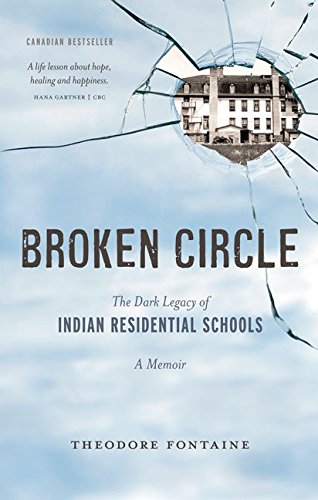
Dark side: The parts of a person, a group, an activity, etc. that are unpleasant, evil, or harmful
Cambridge Dictionary
Chronically underfunded, overcrowded, and unhealthy, they were dangerous to the students who endured them. Indian Residential Schools led to rampant abuse, rape, neglect, and the death of at least 3,200 children.
The criminal justice system also fell short. The TRC has been able to identify fewer than 50 convictions stemming from abuse at residential schools – a fraction of the more than 38,000 claims of sexual and serious physical abuse that were submitted to a compensation adjudication process established several years ago.
“In many ways, the residential school experience lies at the root of the current over incarceration of Aboriginal people,” says the TRC.
Reconciliation
A situation in which two people or groups of people become friendly again after they have argued:
It took hours of negotiations to bring about a reconciliation between the two sides.
The process of making two opposite beliefs, ideas, or situations agree
Cambridge Dictionary
“Traumatized by their school experiences, many succumbed to addictions and found themselves among the disproportionate number of Aboriginal people who come into conflict with the law.”
The TRC says once Aboriginal people are arrested and convicted, they are more likely to go to prison than are non-Aboriginals.
Canada’s prisons are disproportionately filled with Aboriginals.
TRC = Truth and Reconciliation Commission of Canada
Verzoeing
49 Perverted Nun Prank
11 apr. 2011
JFL British Edition is a presentation of JustForLaughsTV, the official Just For Laughs Gags YouTube channel. Home of the funniest, greatest, most amazing, most hilarious, win filled, comedy galore, hidden camera pranks in the world!
ColdWarWarriors
5 jaar geleden